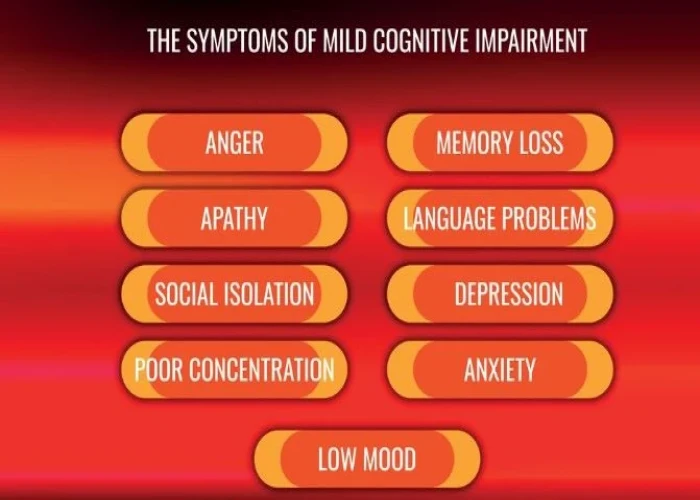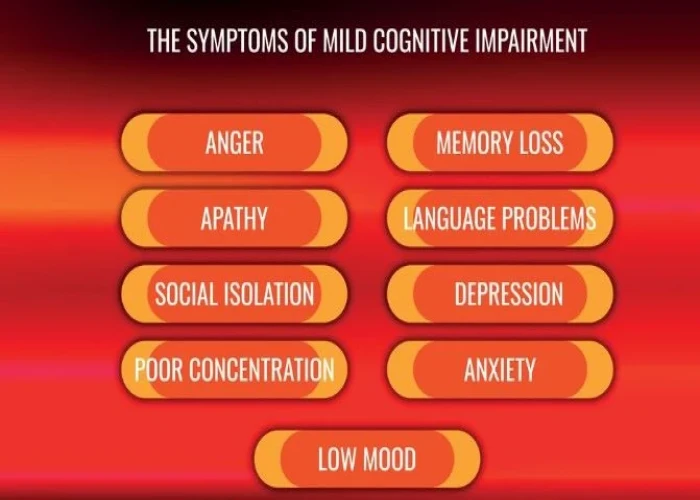 Welcome
Welcome
“May all be happy, may all be healed, may all be at peace and may no one ever suffer."
Mild cognitive impairment (MCI)

Mild cognitive impairment (MCI) is a condition that affects cognitive function, such as memory, language, and decision-making abilities, beyond what is considered normal for a person's age and education level. However, it does not interfere with a person's daily life activities to the extent that dementia does.
MCI is considered to be a transitional state between normal aging and dementia. It may progress to dementia, particularly Alzheimer's disease, but not all cases of MCI do. In fact, some people with MCI may remain stable or even improve over time.
The exact cause of MCI is not fully understood, but it is believed to be related to a combination of genetic, environmental, and lifestyle factors. Risk factors for MCI may include older age, family history of dementia, depression, hypertension, diabetes, and a sedentary lifestyle.
Symptoms of MCI may include forgetfulness, trouble remembering recent events, difficulty with language, decreased attention span, and problems with decision-making or judgment. These symptoms are more noticeable than what would be considered normal aging but do not interfere significantly with daily activities.
Treatment for MCI may involve lifestyle changes, such as engaging in regular exercise, eating a healthy diet, and staying socially active. Some medications may also be prescribed to manage symptoms or slow down the progression of the condition. It is important for individuals with MCI to have regular follow-up appointments with their healthcare provider to monitor their cognitive function and detect any changes.
MCI can be a challenging condition to manage, but early diagnosis and appropriate treatment can help improve outcomes and delay or prevent the onset of dementia.
Research Papers
Disease Signs and Symptoms
- Strong depression
- Irritability
- Anxiety
- Memory loss
- Forget important events such as appointments or social engagements.
- Lose train of thought or the thread of conversations, books or movies.
- Feel increasingly overwhelmed by making decisions, planning steps to accomplish a task or understanding instructions.
- Start to have trouble finding your way around familiar environments.
- Become more impulsive or show increasingly poor judgment.
Disease Causes
Mild cognitive impairment (MCI)
There's no single cause of mild cognitive impairment (MCI), just as there's no single outcome for the disorder. Symptoms of MCI may remain stable for years, progress to Alzheimer's disease or another type of dementia, or improve over time.
Current evidence indicates that MCI often, but not always, develops from a lesser degree of the same types of brain changes seen in Alzheimer's disease or other forms of dementia. Some of these changes have been identified in autopsy studies of people with MCI. These changes include:
- Abnormal clumps of beta-amyloid protein (plaques) and microscopic protein clumps of tau characteristic of Alzheimer's disease (tangles)
- Lewy bodies, which are microscopic clumps of another protein associated with Parkinson's disease, dementia with Lewy bodies and some cases of Alzheimer's disease
- Small strokes or reduced blood flow through brain blood vessels
Brain-imaging studies show that the following changes may be associated with MCI:
- Shrinkage of the hippocampus, a brain region important for memory
- Enlargement of the brain's fluid-filled spaces (ventricles)
- Reduced use of glucose, the sugar that's the primary source of energy for cells, in key brain regions
Disease Prevents
Mild cognitive impairment (MCI)
Mild cognitive impairment can't always be prevented. But research has found some environmental factors that may affect the risk of developing the condition. Studies show that these steps may help prevent cognitive impairment:
- Avoid excessive alcohol use.
- Limit exposure to air pollution.
- Reduce your risk of head injury.
- Don't smoke.
- Manage health conditions such as diabetes, high blood pressure, obesity and depression.
- Practice good sleep hygiene and manage sleep disturbances.
- Eat a nutrient-rich diet that has plenty of fruits and vegetables and is low in saturated fats.
- Engage socially with others.
- Exercise regularly at a moderate to vigorous intensity.
- Wear a hearing aid if you have hearing loss.
- Stimulate your mind with puzzles, games and memory training.
Disease Treatments
Currently, no drugs or other treatments are approved specifically for mild cognitive impairment (MCI) by the Food and Drug Administration (FDA). However, MCI is an active area of research. Clinical studies are underway to better understand the disorder and find treatments that may improve symptoms or prevent or delay progression to dementia.
Alzheimer's drugs
Doctors sometimes prescribe cholinesterase inhibitors, a type of drug approved for Alzheimer's disease, for people with MCI whose main symptom is memory loss. However, cholinesterase inhibitors aren't recommended for routine treatment of MCI. They haven't been found to affect progression to dementia, and can cause side effects.
Treating reversible causes of MCI: Medications
Certain medications can cause side effects that affect cognitive function. These side effects are thought to go away once the medication is stopped. It's important to discuss any side effects with your doctor and never stop taking your medications unless your doctor instructs you to do so. These medications include:
- Benzodiazepines, used to treat conditions such as anxiety, seizures and sleep disturbances
- Anticholinergics, which affect chemicals in the nervous system to treat many different types of conditions
- Antihistamines, often used to manage allergy symptoms
- Opioids, often used to treat pain
- Proton pump inhibitors, often used to treat reflux or gastroesophageal reflux disease (GERD)
Treating reversible causes of MCI: Other conditions
Other common conditions besides MCI can make you feel forgetful or less mentally sharp than usual. Treating these conditions can help improve your memory and overall mental function. Conditions that can affect memory include:
- High blood pressure. People with MCI tend to be more likely to have problems with the blood vessels inside their brains. High blood pressure can worsen these problems and cause memory difficulties. Your doctor will monitor your blood pressure and recommend steps to lower it if it's too high.
- Depression. When you're depressed, you often feel forgetful and mentally "foggy." Depression is common in people with MCI. Treating depression may help improve memory, while making it easier to cope with the changes in your life.
- Sleep apnea. In this condition, your breathing repeatedly stops and starts while you're asleep, making it difficult to get a good night's rest. Sleep apnea can make you feel excessively tired during the day, forgetful and unable to concentrate. Treatment can improve these symptoms and restore alertness.
Disease Diagnoses
Disease Allopathic Generics
Disease Ayurvedic Generics
Disease Homeopathic Generics
Disease yoga
Mild cognitive impairment (MCI) and Learn More about Diseases

Illness anxiety disorder

Marfan syndrome

Sweet's syndrome

Microcephaly

Hyperthyroidism (Overactive Thyroid)

Factor V Leiden

POEMS syndrome

Cushing syndrome
Mild cognitive impairment, mcl, হালকা জ্ঞানীয় প্রতিবন্ধকতা, এমসিআই
To be happy, beautiful, healthy, wealthy, hale and long-lived stay with DM3S.
